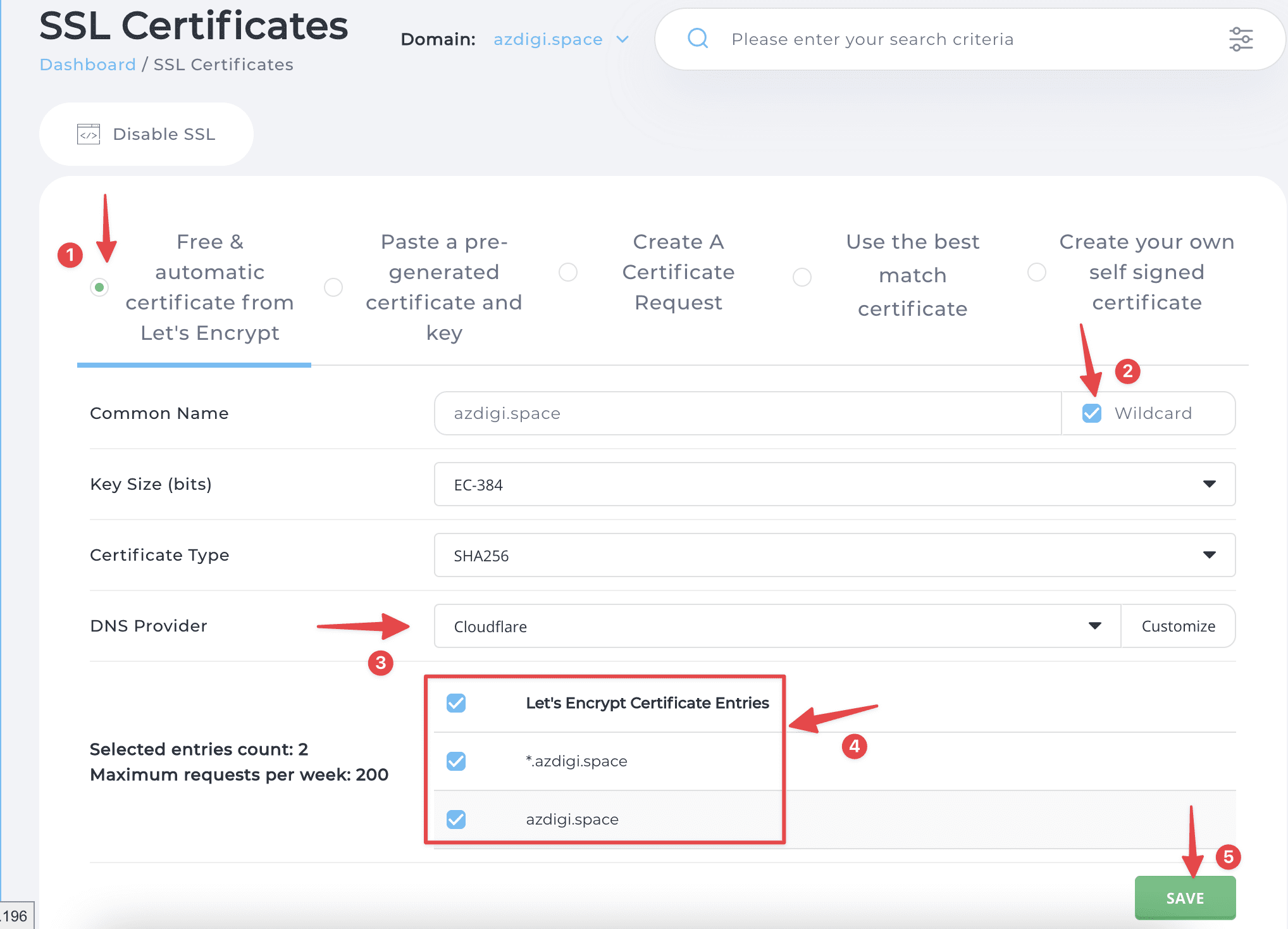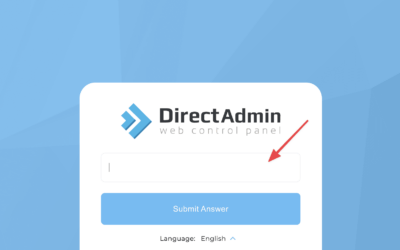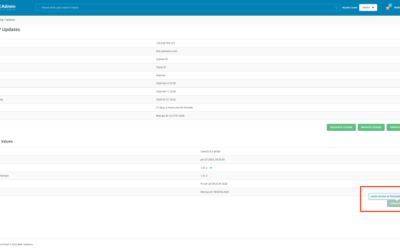Understanding the Importance of SSL Certificates for Multiple Domains in DirectAdmin
In today’s digital landscape, ensuring the security of online information has become paramount. This is especially crucial for websites that handle sensitive data, such as personal information, financial transactions, or login credentials. With the growing number of cyber threats and malicious activities on the web, it is imperative to implement robust measures to protect multiple domains hosted on DirectAdmin.
One of the most vital components of web security is the implementation of SSL (Secure Socket Layer) certificates. An SSL certificate encrypts the connection between a user’s browser and the website they are visiting, ensuring that any data exchanged remains confidential and cannot be intercepted by unauthorized parties. This is particularly significant for websites that host multiple domains, as each domain may handle different kinds of data and require an additional layer of protection. By securing multiple domains with SSL certificates, website owners can instill trust in their users and safeguard their sensitive information from potential threats.
Exploring the Benefits of Using SSL Certificates for Multiple Domains in DirectAdmin
SSL certificates play a vital role in securing websites and protecting sensitive data transmitted between users and websites. For websites with multiple domains hosted on DirectAdmin, using SSL certificates for each domain brings several benefits. Firstly, SSL certificates provide an extra layer of encryption, ensuring that data remains confidential and protected from unauthorized access. This is especially important for websites that handle sensitive information, such as e-commerce platforms or websites that process user login details. By encrypting the data, SSL certificates help prevent data breaches and keep customer information safe.
Furthermore, SSL certificates also improve website credibility and trustworthiness. With the increasing awareness of online security threats, users have become more cautious about sharing their personal information online. Having a valid SSL certificate displayed on a website reassures visitors that their data is secure and instills confidence in the website’s legitimacy. This enhanced trust can lead to increased conversion rates, as users are more likely to complete transactions or engage with a website that they trust to keep their information secure. Overall, utilizing SSL certificates for multiple domains in DirectAdmin offers substantial benefits by providing encryption for sensitive data and enhancing the credibility of websites.
How to Generate a CSR (Certificate Signing Request) for Multiple Domains in DirectAdmin
Once you have decided to secure multiple domains with SSL certificates in DirectAdmin, you will need to generate a Certificate Signing Request (CSR) to initiate the certificate issuance process. A CSR is a file that contains information about your organization and the domain names you wish to secure. It is required by the Certificate Authority (CA) to verify your identity and validate the ownership of the domains.
To generate a CSR for multiple domains in DirectAdmin, you can follow these steps:
1. Log in to your DirectAdmin control panel.
2. Navigate to the “SSL Certificates” section and click on “Certificates” or “Create New Certificate” depending on your DirectAdmin version.
3. Select the option to generate a CSR for multiple domains or a Unified Communications Certificate (UCC).
4. Fill in the required information, including the domain names, your organization’s details, and the email address associated with the certificate.
5. Double-check the information for accuracy, as any mistakes can result in delays during the certificate issuance process.
6. Click on the “Generate” or “Submit” button to create the CSR.
7. The system will generate the CSR file, which you can now use to request a certificate from a trusted CA.
By following these steps, you can easily generate a CSR for multiple domains in DirectAdmin and proceed with the SSL certificate installation process. Remember to keep the generated CSR file secure and store it in a safe location, as it will be required during the certificate issuance and installation processes.
Configuring SSL Certificates for Multiple Domains in DirectAdmin: Step-by-Step Guide
Configuring SSL certificates for multiple domains in DirectAdmin can be a complex task, but with the right step-by-step guide, it becomes much more manageable. To begin, ensure that you have access to DirectAdmin’s control panel and the necessary administrative privileges.
The first step is to generate a CSR (Certificate Signing Request) for your domains. This can be done within the SSL/TLS Manager section of DirectAdmin. Simply select the option to generate a new CSR and enter the required information for each domain. Be sure to double-check the accuracy of the data to avoid any issues during the validation process. Once the CSR is generated, you will be provided with a unique code that will be necessary for obtaining your SSL certificates.
Installing SSL Certificates for Multiple Domains in DirectAdmin: Best Practices
When it comes to installing SSL certificates for multiple domains in DirectAdmin, there are a few best practices that can ensure a smooth and hassle-free process. Firstly, it is crucial to ensure that all the necessary requirements are met before installing the certificates. This includes making sure that the server meets the minimum system requirements, such as having the appropriate version of DirectAdmin and a valid license.
Once the prerequisites are met, it is recommended to use a trusted certificate authority (CA) to obtain the SSL certificates. This ensures that the certificates are issued by a reputable entity and will be recognized by web browsers. Additionally, it is important to generate a separate certificate signing request (CSR) for each domain to be secured. This allows for better organization and management of the certificates, as well as more flexibility when renewing or revoking individual certificates in the future.
Managing SSL Certificate Renewals for Multiple Domains in DirectAdmin
When it comes to managing SSL certificate renewals for multiple domains in DirectAdmin, it’s important to stay proactive and ensure uninterrupted security for your websites. SSL certificates play a crucial role in establishing a secure connection between the server and the user’s browser, protecting sensitive information from potential threats. To effectively manage certificate renewals, it is recommended to keep track of their expiration dates and plan ahead for the renewal process.
One of the best practices for managing SSL certificate renewals is to set up a reminder system. This can be done by either using the built-in features in DirectAdmin or implementing third-party tools that can send notifications as the renewal date approaches. By setting up reminders, you can ensure that no certificate expires inadvertently, reducing the risk of security vulnerabilities. Additionally, it is advisable to create a timeline for the renewal process, allowing ample time for any potential issues to be resolved before the current certificate expires. This proactive approach can minimize downtime and potential disruptions to your website’s security.
Troubleshooting Common Issues with SSL Certificates for Multiple Domains in DirectAdmin
One common issue that users may encounter when working with SSL certificates for multiple domains in DirectAdmin is mismatched domain names. This can occur when the SSL certificate is assigned to one domain but is being accessed through a different domain. In such cases, the browser may display a security warning or error message, indicating that the website’s identity cannot be verified. To troubleshoot this issue, it is important to ensure that the SSL certificate is correctly configured and assigned to the corresponding domain. Additionally, double-checking the website’s links and settings can help identify any potential inconsistencies between the domains and the SSL certificate.
Another common issue that users may face is the Certificate Authority (CA) not being recognized by the browser. This can happen if the SSL certificate is issued by a less widely known or trusted CA. As a result, visitors accessing the website may encounter a security warning or be unable to establish a secure connection. In such cases, it is recommended to check the SSL certificate’s details and verify that it has been issued by a reputable CA. If necessary, users can consider obtaining an SSL certificate from a well-established CA to ensure compatibility and trustworthiness with popular browsers.
• Mismatched domain names: SSL certificate assigned to one domain but accessed through a different domain
– Verify correct configuration and assignment of SSL certificate to corresponding domain
– Double-check website’s links and settings for inconsistencies
• Certificate Authority (CA) not recognized by browser:
– Check SSL certificate details and verify issuance by reputable CA
– Consider obtaining SSL certificate from well-established CA for compatibility and trustworthiness with popular browsers
Ensuring Proper SSL Certificate Validation for Multiple Domains in DirectAdmin
SSL certificate validation is a crucial step in ensuring the security and reliability of multiple domains in DirectAdmin. Validation is a necessary process that verifies the authenticity and legitimacy of an SSL certificate, preventing unauthorized access and potential security breaches. It confirms that the certificate has been issued by a trusted Certificate Authority (CA) and that the domain owner has control over the domain for which the certificate is being requested.
To ensure proper SSL certificate validation for multiple domains in DirectAdmin, there are a few essential steps to follow. First, it is crucial to choose a reliable and reputable Certificate Authority (CA) to issue the SSL certificates. Trusted CAs have strict validation processes in place, which help maintain the overall security of the certificate ecosystem. Additionally, it is important to submit accurate and up-to-date information during the validation process. This includes providing correct contact details and verifying domain ownership using methods specified by the CA. By adhering to these guidelines, you can ensure that the SSL certificates for multiple domains in DirectAdmin undergo thorough validation, strengthening the security of your online presence.
How to Secure Subdomains with SSL Certificates in DirectAdmin
Securing subdomains with SSL certificates in DirectAdmin is crucial for maintaining a safe and trusted online presence. By implementing SSL certificates on subdomains, website owners ensure that their users’ data and transactions are protected from potential threats. Additionally, SSL certificates enhance the credibility of the website, making visitors more confident in sharing sensitive information.
To secure subdomains with SSL certificates in DirectAdmin, the first step is to generate a Certificate Signing Request (CSR). This is a file containing essential information about the organization or individual applying for the SSL certificate. The CSR should include details such as the common name (subdomain name), organization name, locality, and country. Once the CSR is generated, it needs to be submitted to a certificate authority to obtain an SSL certificate. After receiving the certificate, it can be installed in DirectAdmin by following the provided instructions. With the SSL certificate successfully installed, the subdomain will be encrypted, ensuring secure communication between the website and its users.
Integrating SSL Certificates with Other DirectAdmin Features for Enhanced Security
Integrating SSL certificates with other DirectAdmin features can significantly enhance the overall security of your website. By combining the power of SSL encryption with other security measures, you can create a robust defense against potential threats.
One of the key benefits of integrating SSL certificates with DirectAdmin features is the ability to ensure secure data transfer. When SSL certificates are enabled, all data transmitted between the server and the user’s browser is encrypted, making it nearly impossible for unauthorized parties to intercept and decipher the information. This added layer of security is especially crucial for websites that handle sensitive data, such as personal information or financial transactions.
Furthermore, integrating SSL certificates with other DirectAdmin features can also help protect against phishing attacks and unauthorized access. SSL certificates provide users with a visual indicator, such as a padlock icon or a green address bar, indicating that the website they are accessing is secure. This instills trust in users and reassures them that their interactions with the website are protected. By integrating SSL certificates with other DirectAdmin security features, you can create a comprehensive security framework that guards against various types of cyber threats.
What is the importance of SSL certificates for multiple domains in DirectAdmin?
SSL certificates ensure secure communication between websites and users by encrypting data and verifying the authenticity of the domain.
What are the benefits of using SSL certificates for multiple domains in DirectAdmin?
Using SSL certificates for multiple domains allows you to protect sensitive information, increase trust among users, improve search engine rankings, and support multiple websites with secure connections.
How do I generate a CSR (Certificate Signing Request) for multiple domains in DirectAdmin?
To generate a CSR for multiple domains, you can use the DirectAdmin control panel to enter the details of each domain, including the common name, organization, and contact information.
Can you provide a step-by-step guide for configuring SSL certificates for multiple domains in DirectAdmin?
Yes, we have a detailed step-by-step guide available in the article that will walk you through the process of configuring SSL certificates for multiple domains in DirectAdmin.
What are the best practices for installing SSL certificates for multiple domains in DirectAdmin?
The best practices include ensuring that the SSL certificates are up to date, properly configuring the server for HTTPS connections, and regularly monitoring and renewing the certificates.
How can I manage SSL certificate renewals for multiple domains in DirectAdmin?
DirectAdmin provides a built-in feature to manage SSL certificate renewals. You can set up automatic renewal notifications and utilize the renewal tools provided by DirectAdmin to streamline the process.
What are some common issues with SSL certificates for multiple domains in DirectAdmin and how can I troubleshoot them?
Some common issues include certificate installation errors, mismatched domain names, and certificate expiration. You can troubleshoot these issues by checking the certificate configuration, renewing or reinstalling the certificate, and ensuring the correct domain names are used.
How can I ensure proper SSL certificate validation for multiple domains in DirectAdmin?
To ensure proper SSL certificate validation, you should verify that the certificate is issued by a trusted Certificate Authority and that the domain matches the certificate details. Regularly checking the certificate status and renewing it on time also ensures proper validation.
Can I secure subdomains with SSL certificates in DirectAdmin?
Yes, you can secure subdomains by obtaining a wildcard SSL certificate or generating individual SSL certificates for each subdomain.
How can I integrate SSL certificates with other DirectAdmin features for enhanced security?
You can integrate SSL certificates with other DirectAdmin features by enabling HTTPS for all DirectAdmin interfaces, securing email communication with SSL/TLS, and using SSL for FTP connections to enhance overall security.




